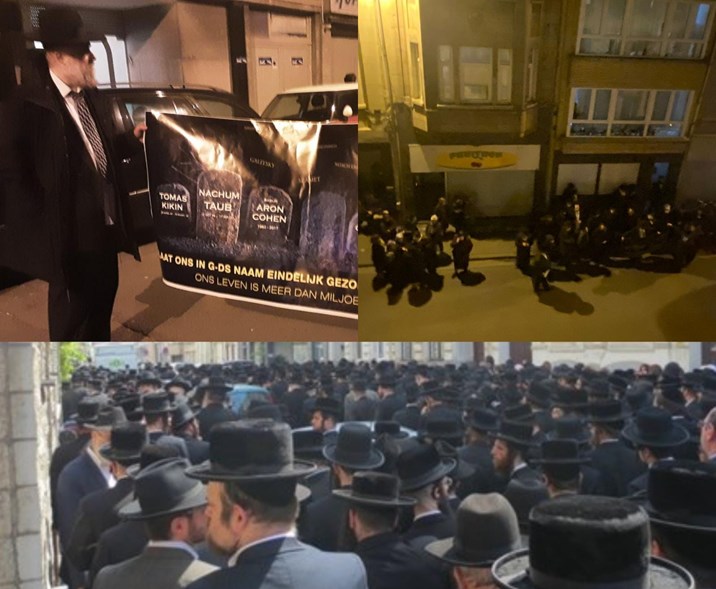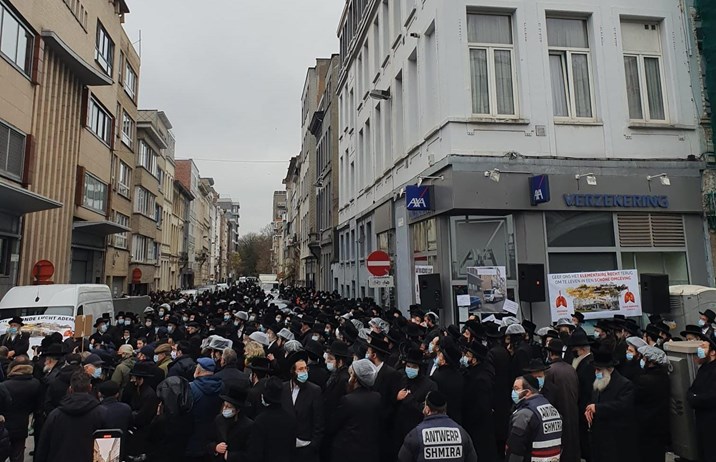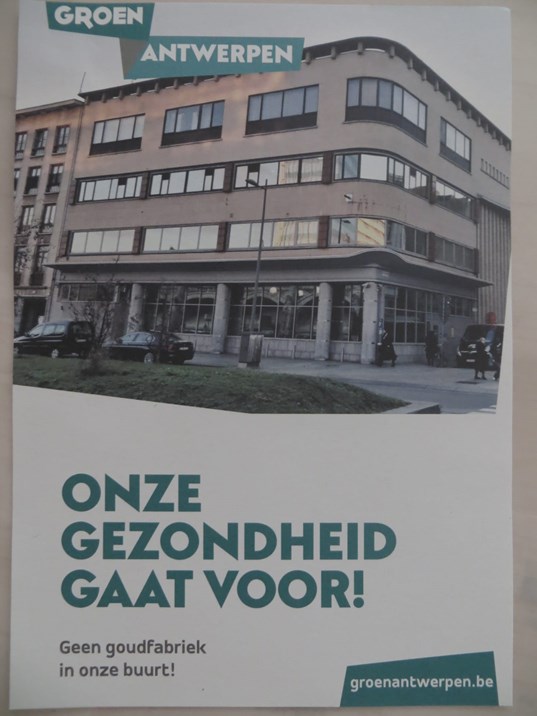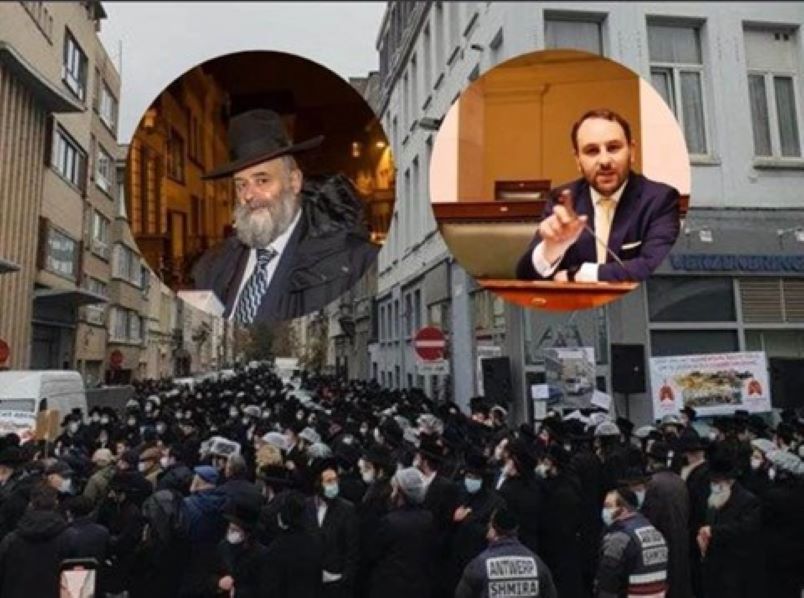A Belgian court ruled this week that a gold processing factory located in the Chareidi neighborhood in the center of Antwerp must vacate the area within three years, B’Chadrei Chareidim reported.
The ruling follows a protracted public and legal battle by Chareidi residents of the area and other interested parties against the factory due to fears of pollution following a disproportionately high rate of cancer in the community in recent years
In June, the gold factory, Value Trading, applied for a 10-year extension on its license, prompting the campaign against it.
Askanim published leaflets with maps marked with dots indicating the high number of residents living near the factory who have contracted cancer in recent years and even died.
Relatives of two members of the kehilla who passed away of cancer in the last two years told B’Chadrei that when they accompanied their relative to the UZ Leuven University Hospital, the professor asked them: “Do you live in the area near the gold-processing plant? This is already the second case of this disease in the area.”
An almanah of a Chareidi resident who passed away recently of cancer told local media: “What else can they tell me? My husband is dead. I was left alone with eight children.”

Other residents told the media: “We know dozens of people who were diagnosed with cancer. How many more victims will there be? A plant like this doesn’t belongs in the center of the city. If our government is really so committed to environmental issues, how can this plant still be allowed here?”
Several weeks ago, Chareidi askanim in the city organized a protest against the factory that was attended by thousands, including dozens of Rabbanim and community leaders alongside environmental activists and politicians from the Belgian general community. Askanim and activists also filed numerous legal petitions against the factory.

The ba’al chessed Shlomo Zeifman led the campaign, enlisting the support of local Rabbanim and organizing the protest.
Zeifman told B’Chadrei that the Chareidi representative in Belgian parliament Michael Freilich is the one who deserves the credit for the victory as he did everything in his power in the battle against the factory’s continued presence in the neighborhood. Zeifman noted that the factory’s owner can still appeal the decision but if it does so, they are ready to relaunch the campaign in full force. He added that the factory owner is an oligarch with much power and influence over key government officials, which made the battle against the factory extremely difficult and therefore the court’s decision in the community’s favor has caused great excitement and satisfaction.

(YWN Israel Desk – Jerusalem)












5 Responses
Sad it went so long.
No offense to anyone, just curious about local minhagim – ma nishtana charedim haze from some other ones, as they are all in surgical masks outside at the levaya (but not at the protest)?
Is there any evidence at all that this factory is causing anyone’s cancer? The mere existence of a cluster means nothing at all. Clusters are everywhere, and 999 times out of 1000 they’re just a temporary coincidence.
It is stupid to expect that the incidence of cancer should always be evenly spread geographically. There’s just no reason to expect that. Naturally there will always be areas where for a time there are fewer cancers and areas where there are more. After a while a cluster will disappear, and a new one will appear somewhere else.
what are the oil refineries and chemical factories in linden new jersey different
what are the oil refineries and chemical factories in linden new jersey different there theres no problem?
AAQ, I assume the levaya took place at a time when the government over there required masks outdoors, and anyone not in a mask could be arrested, so they wore them. The protest was either before the Wuhan disease, or at a time when masks were not required, so they didn’t wear them.
Masks are the modern secular world’s equivalent of red strings. There is no rational basis for believing in them, but superstitious people do. If the government required everyone to wear a red string we would wear that too, for the same reason.